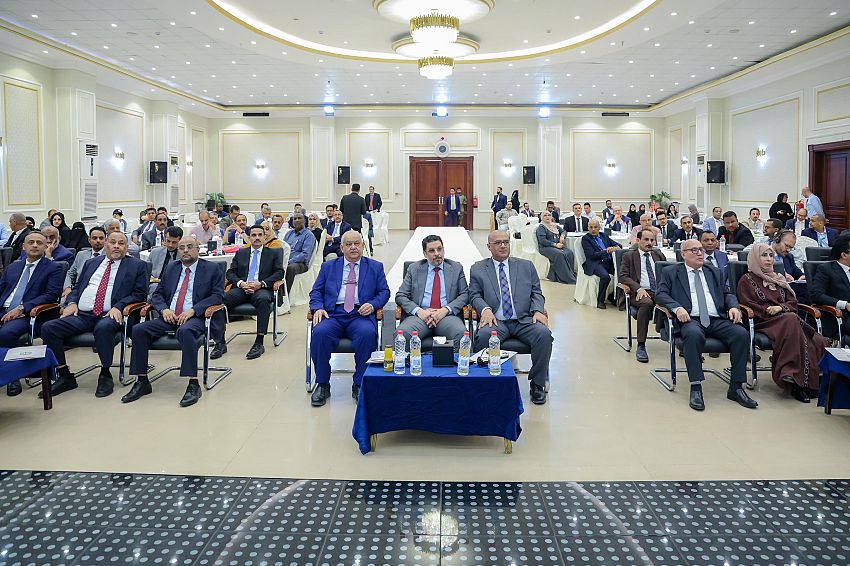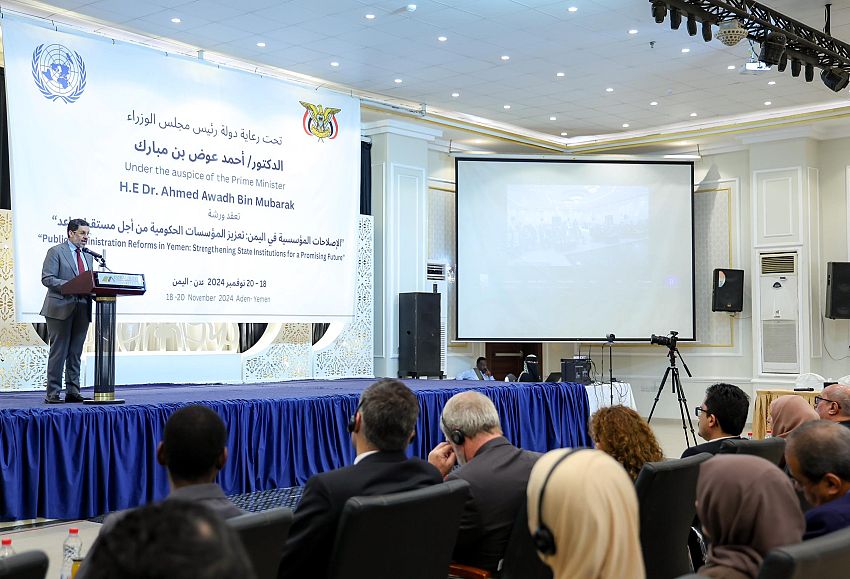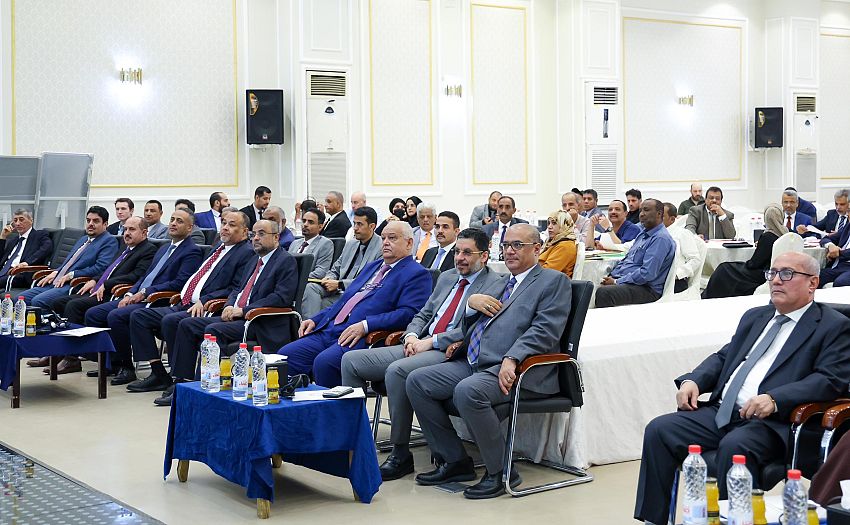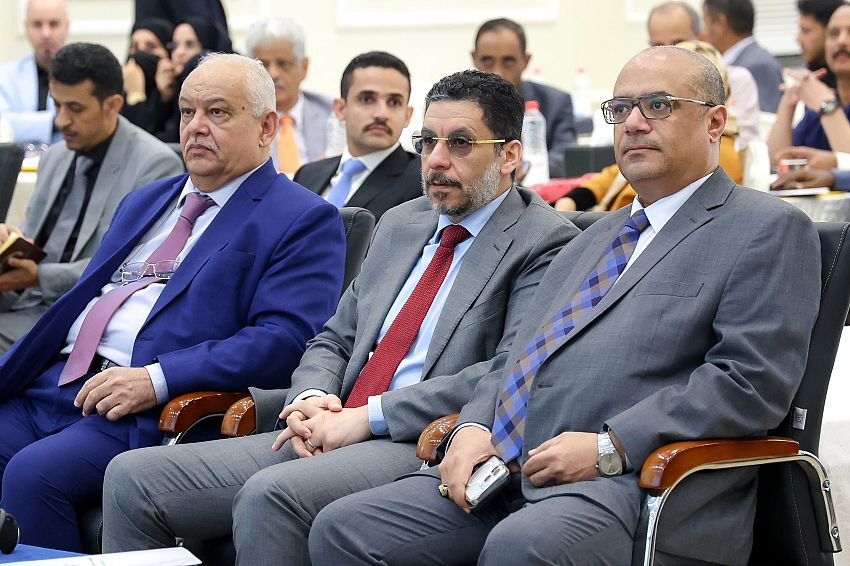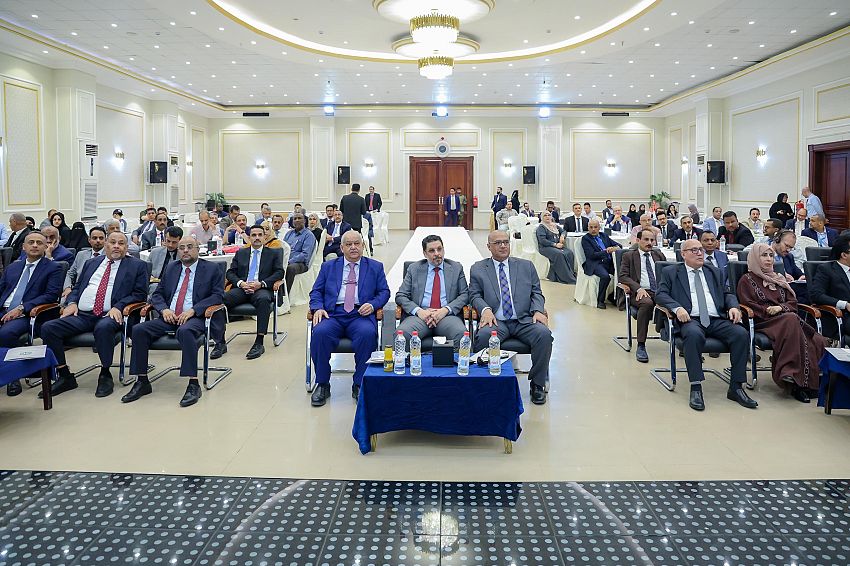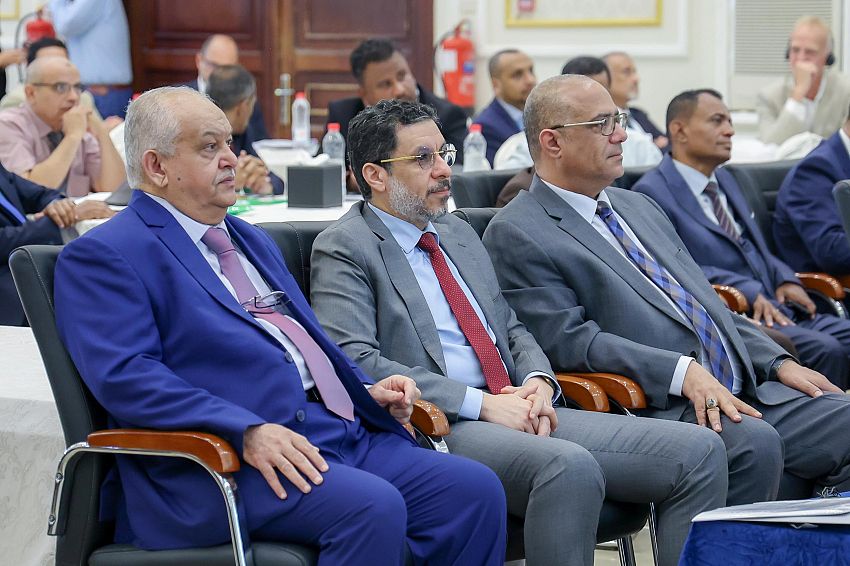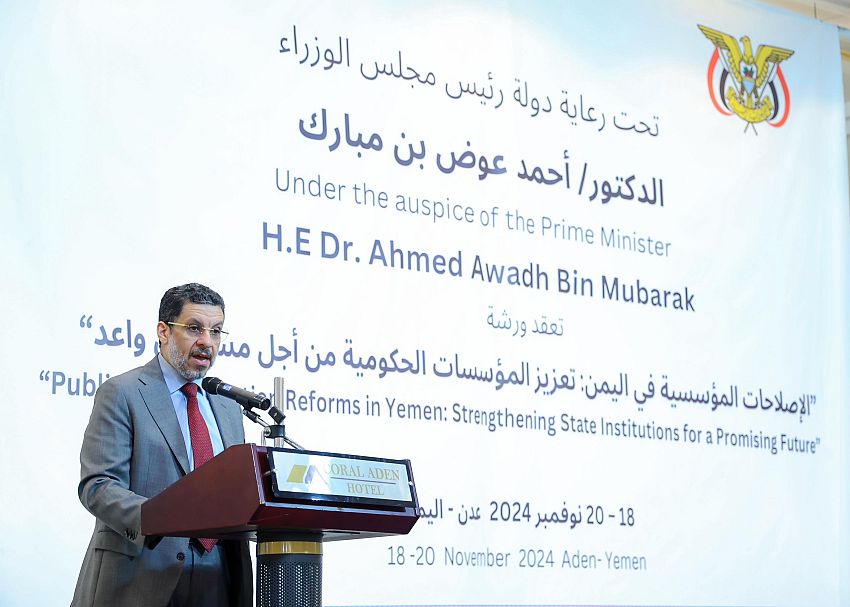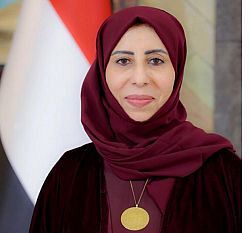
Minister of Planning Discusses Resumption of Article IV Consultations with IMF
Minister of Planning and International Cooperation Dr. Afrah al-Zouba held Thursday a virtual meeting with the Head of the International Monetary Fund (IMF) Mission to Yemen, Esther Perez Ruiz.

Casualty Toll from Israeli Offensive on Gaza Rises to 72,070 Martyrs, 171,738 Injured
The casualty toll from the Israeli occupation’s offensive on the Gaza Strip since October 7, 2023, has risen to 72,070 martyrs and 171,738 injured, according to the Ministry of Health in Gaza.

Korea large companies' exports rise 10 percent
Large companies' exports in South Korea rose approximately 10 percent year-on-year in the fourth quarter of last year, driven by increased global demand for semiconductors.

Saudi League: Al-Nassr, Al-Ettifaq and Neom Secure Victories Over Al-Ittihad, Damac and Al-Riyadh
Al-Nassr defeated its guest Al-Ittihad 2–0 in the match that brought them together at Al-Awwal Park Stadium in Riyadh, as part of the 21st round of the Saudi Professional League.
Last Update: ،
2026/02/27
Time
12:05:45
Latest News:
 Minister of Defense Stresses Activating Oversight, Inspection, Strengthening Intelligence Work
Minister of Defense Stresses Activating Oversight, Inspection, Strengthening Intelligence Work
 Minister of Transport meets with shipping company agents, Director of UN Envoy Office
Minister of Transport meets with shipping company agents, Director of UN Envoy Office
 Minister of Higher Education Discusses with UNESCO Enhancing Cooperation, Developing Higher Education ..
Minister of Higher Education Discusses with UNESCO Enhancing Cooperation, Developing Higher Education ..
 Supreme Committee for Budgets Approves Draft Budget for 2026
Supreme Committee for Budgets Approves Draft Budget for 2026
 Minister Al-Sharjabi Discusses Water and Environment Projects with UNDP
Minister Al-Sharjabi Discusses Water and Environment Projects with UNDP
Latest News:
 Minister of Defense Stresses Activating Oversight, Inspection, Strengthening Intelligence Work
Minister of Defense Stresses Activating Oversight, Inspection, Strengthening Intelligence Work
 Minister of Transport meets with shipping company agents, Director of UN Envoy Office
Minister of Transport meets with shipping company agents, Director of UN Envoy Office
 Minister of Higher Education Discusses with UNESCO Enhancing Cooperation, Developing Higher Education ..
Minister of Higher Education Discusses with UNESCO Enhancing Cooperation, Developing Higher Education ..
 Supreme Committee for Budgets Approves Draft Budget for 2026
Supreme Committee for Budgets Approves Draft Budget for 2026
 Minister Al-Sharjabi Discusses Water and Environment Projects with UNDP
Minister Al-Sharjabi Discusses Water and Environment Projects with UNDP
Prime Minister launches national workshop on institutional reforms in Yemen
[18/11/2024 05:43]
ADEN - SABA
Prime Minister Dr. Ahmed Awadh bin Mubarak inaugurated on Monday a national workshop focused on institutional reforms in Yemen: Strengthening State Institutions for a Promising Future.
The workshop, organized by the Prime Ministry in coordination with the Ministry of Civil Service and Insurance, and supported by the United Nations Development Program, will take place over three days.
Its goal is to create a collaborative platform to support the government in its efforts to enhance public administration and build institutions by assessing the current state of government entities, identifying key obstacles to their renewal, and outlining necessary steps for their reform and strengthening.
In his opening speech, Prime Minister emphasized that this is the first workshop organized by the Yemeni government since the disastrous Houthi coup, aimed at achieving several objectives, including directing donor activity and international organizations toward vital sectors that will make a significant difference in Yemen.
“I want to stress that we are not starting from scratch; we are mindful of the previous efforts made in this area and the government’s commitments in financial and administrative reform, particularly its commitments to the Arab Monetary Fund,” he said.
The Prime Minister confirmed that this workshop is part of implementing five pathways that are primary priorities for the government, aiming to rectify many distortions and change the current reality of institutions, transforming them into entities that achieve efficiency and capability in performance based on the principles of good governance, transparency, accountability, the rule of law, justice, and equality.
Bin Mubarak pointed out that the workshop highlights one of the major issues facing the government: the status of the pension fund, which serves as a fundamental umbrella for social protection for a wide segment of society—the retirees who have dedicated a significant part of their lives to serving the nation and deserve to be a priority for the government.
He stated: "However, we place this within a vision for comprehensive administrative reform that begins with overhauling the pension system and transforming it into a successful investment fund with the freedom to invest its resources in vital and secure investment projects, contributing to the country’s development while ensuring the rights of the insured and providing them with social protection and a decent life."
The Prime Minister revealed that in some institutions, the percentage of those reaching retirement age has reached 80%. Due to difficult living conditions and an inability to meet pension salary obligations, employees eligible for retirement have been forced to remain in their positions, leading to compounded administrative and financial problems that hinder the renewal and rejuvenation of government institutions, thereby weakening state institutions and limiting their efficiency and performance.
This situation has also deprived institutions of benefiting from the energy of youth, who are our hope for a better future. One of our goals is to empower youth in government institutions.
He clarified that the objective of reforming the pension system is not only to enhance social protection but also to initiate a comprehensive reform process within state institutions.
The Prime Minister announced a comprehensive reform process in five key areas: restructuring institutions, reforming wages and salaries, improving employment policy, building capacities, and advancing digitization.
He emphasized that these reforms are not mere aspirations but necessary steps to ensure the sustainability of our institutions and fulfill the aspirations of the Yemeni people in building a strong, cohesive, and just state.
Regarding the first area of restructuring institutions, Dr. Ahmed Awadh bin Mubarak explained that many institutions operate with traditional, replicated structures that do not fit their assigned tasks.
He directed the restructuring of the Prime Minister's Office and the General Secretariat of the Council of Ministers as a first step toward transforming the Prime Minister's Office into a center of excellence that serves as a model for government performance.
He noted that as part of wage and salary reform, a new system will be developed to promote fairness and equity, achieving financial and psychological stability for employees.
The employment policy will be reformed by adopting a competitive and transparent system that ensures the selection of qualified and capable staff, contributing to enhancing institutional performance efficiency.
Prime Minister Dr. Ahmed Awadh bin Mubarak inaugurated on Monday a national workshop focused on institutional reforms in Yemen: Strengthening State Institutions for a Promising Future.
The workshop, organized by the Prime Ministry in coordination with the Ministry of Civil Service and Insurance, and supported by the United Nations Development Program, will take place over three days.
Its goal is to create a collaborative platform to support the government in its efforts to enhance public administration and build institutions by assessing the current state of government entities, identifying key obstacles to their renewal, and outlining necessary steps for their reform and strengthening.
In his opening speech, Prime Minister emphasized that this is the first workshop organized by the Yemeni government since the disastrous Houthi coup, aimed at achieving several objectives, including directing donor activity and international organizations toward vital sectors that will make a significant difference in Yemen.
“I want to stress that we are not starting from scratch; we are mindful of the previous efforts made in this area and the government’s commitments in financial and administrative reform, particularly its commitments to the Arab Monetary Fund,” he said.
The Prime Minister confirmed that this workshop is part of implementing five pathways that are primary priorities for the government, aiming to rectify many distortions and change the current reality of institutions, transforming them into entities that achieve efficiency and capability in performance based on the principles of good governance, transparency, accountability, the rule of law, justice, and equality.
Bin Mubarak pointed out that the workshop highlights one of the major issues facing the government: the status of the pension fund, which serves as a fundamental umbrella for social protection for a wide segment of society—the retirees who have dedicated a significant part of their lives to serving the nation and deserve to be a priority for the government.
He stated: "However, we place this within a vision for comprehensive administrative reform that begins with overhauling the pension system and transforming it into a successful investment fund with the freedom to invest its resources in vital and secure investment projects, contributing to the country’s development while ensuring the rights of the insured and providing them with social protection and a decent life."
The Prime Minister revealed that in some institutions, the percentage of those reaching retirement age has reached 80%. Due to difficult living conditions and an inability to meet pension salary obligations, employees eligible for retirement have been forced to remain in their positions, leading to compounded administrative and financial problems that hinder the renewal and rejuvenation of government institutions, thereby weakening state institutions and limiting their efficiency and performance.
This situation has also deprived institutions of benefiting from the energy of youth, who are our hope for a better future. One of our goals is to empower youth in government institutions.
He clarified that the objective of reforming the pension system is not only to enhance social protection but also to initiate a comprehensive reform process within state institutions.
The Prime Minister announced a comprehensive reform process in five key areas: restructuring institutions, reforming wages and salaries, improving employment policy, building capacities, and advancing digitization.
He emphasized that these reforms are not mere aspirations but necessary steps to ensure the sustainability of our institutions and fulfill the aspirations of the Yemeni people in building a strong, cohesive, and just state.
Regarding the first area of restructuring institutions, Dr. Ahmed Awadh bin Mubarak explained that many institutions operate with traditional, replicated structures that do not fit their assigned tasks.
He directed the restructuring of the Prime Minister's Office and the General Secretariat of the Council of Ministers as a first step toward transforming the Prime Minister's Office into a center of excellence that serves as a model for government performance.
He noted that as part of wage and salary reform, a new system will be developed to promote fairness and equity, achieving financial and psychological stability for employees.
The employment policy will be reformed by adopting a competitive and transparent system that ensures the selection of qualified and capable staff, contributing to enhancing institutional performance efficiency.
Key words:
sustainability - administrative - administration - government’s - accountability - organizations - restructuring - psychological - society—the - comprehensive - PM Orders Immediate Payment of Salaries for Civil Servants, Military Personnel
PM Orders Immediate Payment of Salaries for Civil Servants, Military Personnel President Al-Alimi: New Saudi Support is Additional Message of Promising Strategic Partnership
President Al-Alimi: New Saudi Support is Additional Message of Promising Strategic Partnership Prime Minister Expresses Deep Appreciation for New Saudi Support
Prime Minister Expresses Deep Appreciation for New Saudi Support Prime Minister receives message from IMF Managing Director
Prime Minister receives message from IMF Managing Director  Yemen Renews Firm Commitment to Principles of UN Charter, Universal Declaration of Human Rights
Yemen Renews Firm Commitment to Principles of UN Charter, Universal Declaration of Human Rights President al-Alimi: Stability in southern governorates model for promising Yemeni-Saudi partnership
President al-Alimi: Stability in southern governorates model for promising Yemeni-Saudi partnership Minister of Planning Discusses Enhancing Development Cooperation with German Ambassador
Minister of Planning Discusses Enhancing Development Cooperation with German Ambassador Culture Minister Discusses Strengthening Partnership with UNESCO to Protect Heritage
Culture Minister Discusses Strengthening Partnership with UNESCO to Protect Heritage Yemen Finance Minister Emphasizes Teamwork to Boost Economy
Yemen Finance Minister Emphasizes Teamwork to Boost Economy Yemen Youth Minister Discusses Strategic Cooperation with British Council
Yemen Youth Minister Discusses Strategic Cooperation with British Council